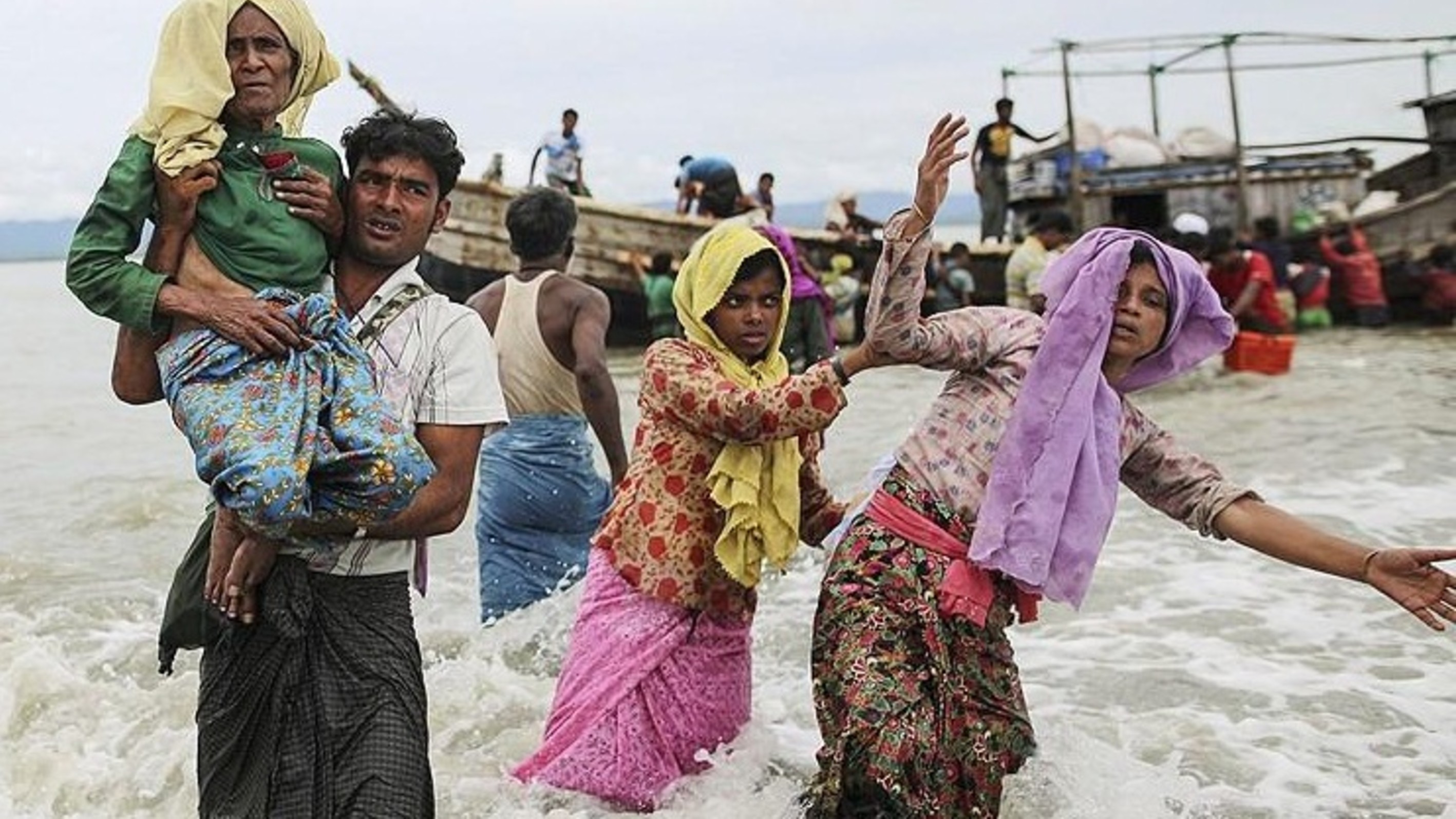News

Twelve Nobel laureates, including Tawakkol Karman, urge UNSC to stop persecution of Rohingya
Nobel Peace Laureate and human rights activist, Tawakkol Karman, together with seventeen other Nobel Laureates and international personalities sent an open letter to the UN Security Council urging it to take what is necessary to end the suffering of Rohingya Muslim in Myanmar.
“We call on UNSC to intervene immediately by using all available means. We request you to take immediate action for cessation of indiscriminate military attack on innocent civilians that is forcing them to leave their home and flee country to turn into stateless people.,” they wrote in the letter distributed by Yunus Centre in Dhaka.
The signatories are: Professor Muhammad Yunus, Máiread Maguire, Betty Williams,Archbishop Desmond Tutu, Oscar Arias Sánchez, Jody Williams, Mo Ibrahim, Asma Jahangir, Kerry Kennedy, Alaa Murabit, Shirin Ebadi, Leymah Gbowee,Tawakkol Karman, Malala Yousafzai, Sir Richard J Roberts, Elizabeth Blackburn, Surin Pitsuwan, Paul Polman, Mary Robinson, Jeffrey D Sachs,Javed Akhtar, Syed Hamid Albar, Shabana Azmi, Emma Bonino, Sir Richard Branson, Gro Harlem Brundtland, Narayana Murthy, Kasit Piromya, Forest Whitaker, Jochen Zeitz.
"The human tragedy and crimes against humanity unfolding in the Arakan region of Myanmar need your immediate intervention. This is one of the moments when bold and decisive actions are needed."
They wrote that, “Some of us denounced the previous spate of violence late last year and wrote to you to intervene. However, the situation has not improved. We, urge you to take decisive actions to stop the violence against innocent civilians and bring permanent peace in Rakhine state.”
To implement the Anan Commission recommendations, they suggest the following:
1. Reappoint the commission members immediately to constitute a committee to oversee the implementation of the recommendations
2. Take immediate steps to stop the outflow of refugees
3. Invite international observers to visit vulnerable areas on a regular basis
4. Invite back the refugees who already left the country
5. Build camps within Myanmar for the returning refugees to facilitate their rehabilitation with UN financing and supervision
6. Give them the citizenship as prescribed in the commission report under the exclusive authority of the implementation committee
7. Ensure political freedom and freedom of movement
“A bold change in approach is needed by the United Nations and the international community if there is to be an end to the cycle of violence against the Rohingyas,” they said.
“The government of Myanmar needs to be told that international support and finance is conditional on a major change in policy towards the Rohingya.”
Many of the Nobel laureates had earlier denounced the previous spate of violence late last year and wrote to the Security Council to intervene. However, the situation has not improved.
“We urge you to take decisive actions to stop the violence against innocent civilians and bring permanent peace to Rakhine state,” they said in the letter.
“Unless, constructive effort to build lasting peace is taken, the situation will get worse which in turn may pose serious security threat to the neighbouring countries.”
They gave historical background of these ethnic Muslims.
“At independence of Burma from the British in 1948 and under successive governments, Burma recognised the people of all ethnicities within its border, including the Rohingyas, as full citizens, having representation in the parliament.”
“The military juntas in the 1980s decided that Rohingyas are not Burmese. Accordingly, they stripped the Rohingyas of their citizenship. They used military and political means to make sure that the Rohingyas leave the country. Systematic persecution aiming at ethnic and religious cleansing began.”
According to different organizations, recent military offensives by the Myanmar Army in Rakhine State has led to the killing of hundreds of Rohingya people. Hundreds of thousands of people have been displaced.
Complete villages have been burned, women raped, many civilians arbitrarily arrested, and children killed. Crucially, humanitarian aid organisations have been almost completely denied access, creating an appalling humanitarian crisis in an area already extremely poor.
According to UN sources, around 370,000 people have fled to Bangladesh during the last two weeks. The human misery created by such massive displacement of men, women and children, under the threat of death, is getting worse every day.
http://aa.com.tr/en/asia-pacific/12-nobel-laureates-urge-unsc-to-end-rohingya-crisis-/909759
